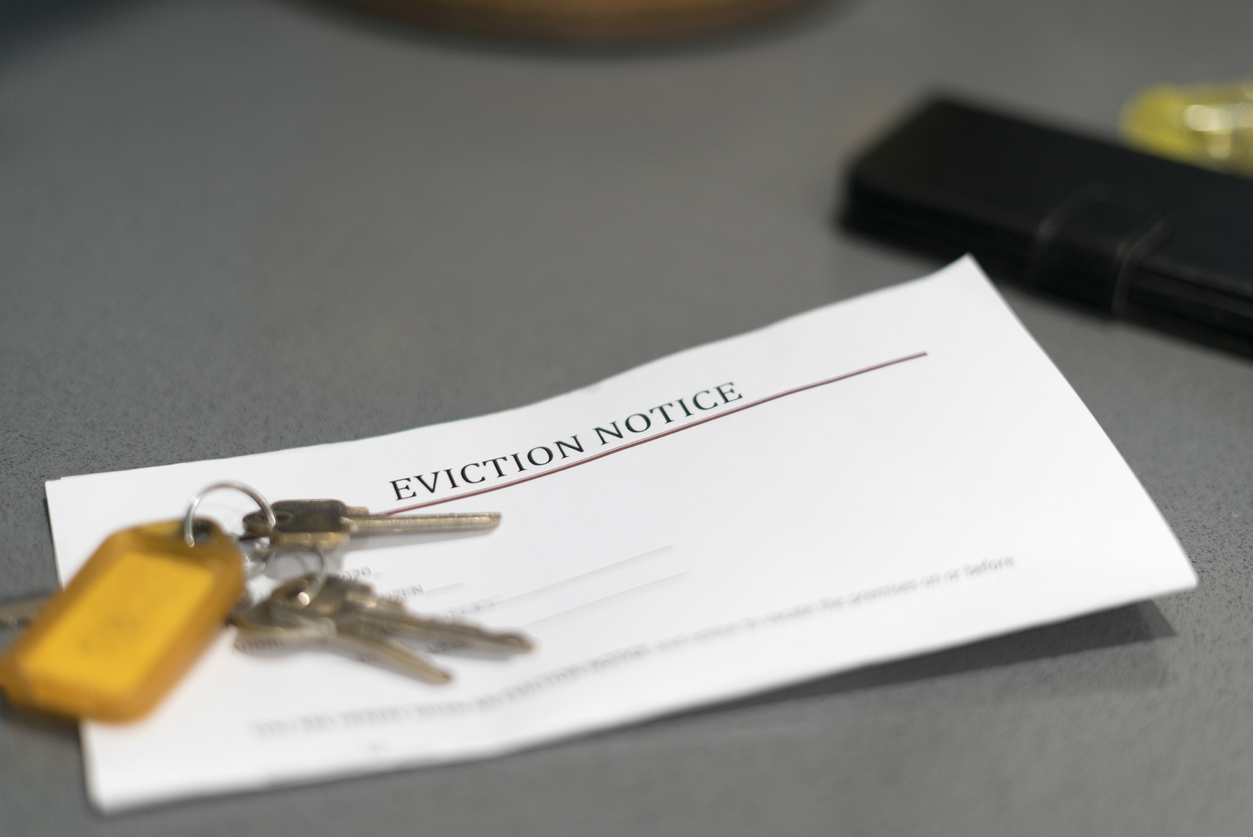Severe maladministration for exempt accommodation provider 3CHA after significant failings led to the unreasonable eviction of a resident
9 March 2023
The Ombudsman found severe maladministration for 3CHA after a resident living in supported housing was issued with an immediate eviction notice, contrary to the landlord’s policy and without reasonable evidence for issuing the notice.

We found severe maladministration from 3CHA for how it handled a residents’ eviction, which caused significant detriment to the resident after being told she was being evicted immediately without reasonable notice and in breach of the landlord’s policies.
The finding raises further concerns about exempt accommodation, where particular issues have been raised in the Birmingham area.
A managing agent for the landlord issued the resident with an “Official Eviction Notice” asking her to leave her supported accommodation immediately otherwise further action would be taken by authorities.
It was said that this followed verbal and written warnings – none of which were presented to the Ombudsman. The notice was also against the landlord’s policy, in which evictions have to be signed off by a senior manager, a notice to quit be completed, and a reasonable 28 day period of notice given. It is not clear any of this was completed.
Two reasons were given for her eviction, the refusal to let a gas engineer enter the property without a face mask because of the Covid-19 pandemic and service charge arrears. The landlord has subsequently said that the resident was within her rights to refuse access and the Ombudsman has seen no evidence of any arrears.
Whilst the landlord acted appropriately by offering the resident an apology and giving assurances about the managing agent, the landlord’s responses did not adequately reflect the seriousness of its failings. The fact the resident was asked to leave the accommodation immediately also hampered her ability to challenge the eviction.
The landlord acknowledged to the resident it retained ultimate “responsibility” towards its residents, regardless of the fact the property was managed by the agent. The landlord is therefore responsible for the significant failure of the managing agent to treat the resident fairly.
In its learning from the case, the landlord said it has undertaken additional quality assessment reviews and property inspections with the managing agent, as well as monitoring its eviction approval process.
We ordered the landlord to strengthen its performance monitoring of the managing agent and to apologise and pay the resident £1,800 in compensation.
Spotlight report: Landlords’ engagement with private freeholders and managing agents
Richard Blakeway, Housing Ombudsman, said: “When we examined the relationship between landlords and managing agents, we found it was sometimes dysfunctional. This investigation demonstrates the detriment to a resident that can result from service failures and raises several significant concerns.
“We’re not the only ones concerned about the quality of supported accommodation and we hope that some of the lessons from this case will drive improvements.
“Around the time of this case the resident was also raising concerns about the “heavy handed” and “intimidating” behaviour of the managing agent’s staff.
“The landlord has confirmed that one of the reasons given for the eviction should not have stood and we’ve seen no evidence regarding the cited arrears, or any evidence the resident was provided with warnings, that should have happened under its own procedures.
“The resident was treated unfairly, and the landlord does not appear to have considered the seriousness of the situation in its responses at the time, or the detriment the resident would likely have been caused. Furthermore, it has not demonstrated that it sought to “put things right”.
“I would urge the sector to revisit our Spotlight report on dealing with private freeholders and managing agents, where we set out a number of good practice recommendations.
“I welcome the landlord’s response on its learning from this case and the changes being made to improve its service. I would encourage other landlords to consider the learning the case offers for their own services.”
We also found service failure for the landlord’s response to the resident’s concerns about staff conduct and the level of support offered, the compensation offered and the overall complaint handling.
In all cases of severe maladministration, we invite the landlord to provide a learning statement.
3CHA’s learning statement
We have offered our sincere apologies to the resident and acknowledged the distress caused.
Following the complaint, we undertook additional quality assessment reviews and property inspections with the managing agent for a period of six months. This included a review of any eviction action taken, support planning and paperwork and by speaking to residents.
The managing agent took on all recommendations and complied with reviews. The additional monitoring did not highlight any concerns; however, we recognise the importance of ongoing monitoring and feedback and have implemented the following with all of our manging agents:
- Quality check of support paperwork two months after move in and provide feedback as appropriate
- Monthly resident satisfaction questionnaires completed by 3CHA
- Monitoring of eviction approval process
- Revised ‘How to complain’ poster for communal areas and resident information leaflet at sign up
- Revised manging agents monthly report
Additionally, we have reviewed the Ombudsman’s Spotlight report Landlords’ engagement with private freeholders and managing agents. 3CHA are committed to take action to ensure that we are meeting the recommendations and have completed the self-assessment to measure our progress.
We value our relationship with the Housing Ombudsman and appreciate the opportunity to learn from this case and to improve the service to our residents.
